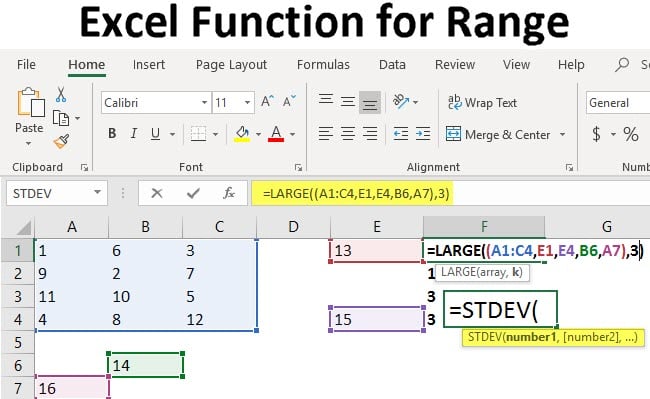

With Analyze in Excel, you can bring Power BI datasets into Excel, and then view and interact with them using PivotTables, charts, slicers, and other Excel features. To use Analyze in Excel you must first download the feature from Power BI, install it, and then select one or more datasets to use in Excel. Excel can help you do simple arithmetic like adding, subtracting, multiplying, or dividing any of your data. To add, use the + sign. To subtract, use the - sign. To multiply, use the. sign. To divide, use the / sign. To use exponents, use the ^ sign. Remember, all formulas in Excel must begin with an equal sign (=). Excel for the web looks a lot like the Excel desktop app. However, there are some differences to be aware of. For example, not all file formats are supported, and some features may work differently than the desktop app. This article explains these differences. File formats that are supported in Excel for the web. Excel workbook files (.xlsx). If they want to use an Excel app and not Excel for the web to co-author, they can select Edit Workbook Edit in Excel. However, they'll need a version of the Excel app that supports co-authoring. Excel for Android, Excel for iOS, Excel Mobile, and Excel for Microsoft 365 are the versions that currently support co-authoring.
- Details
Training Summary
Excel is the most powerful tool to manage and analyze various types of Data. This Microsoft Excel tutorial for beginners covers in-depth lessons for Excel learning and how to use various Excel formulas, tables and charts for managing small to large scale business process. This Excel for beginners course will help you learn Excel basics.
What should I know?
How To Add Excel In Excel
Nothing! This Free Excel training course assumes you are a beginner to Excel.


What will you Learn?
Introduction
| Tutorial | Introduction to Microsoft Excel |
| Tutorial | How to Add, Subtract, Multiply, Divide in Excel |
| Tutorial | Excel Data Validation, Filters, Grouping |
| Tutorial | Excel Formulas & Functions: Learn with Basic EXAMPLES |
| Tutorial | IF, AND, OR, Nested IF & NOT Logical Functions in Excel |
| Tutorial | How to Create Charts in Excel: Types & Examples |
| Tutorial | How to make Budget in Excel: Personal Finance Tutorial |

All Excel Formulas Pdf
Advance Stuff
| Tutorial | How to Import XML Data into Excel [Example] |
| Tutorial | How to Import CSV Data (Text) into Excel [Example] |
| Tutorial | How to Import MS Access Data into Excel [Example] |
| Tutorial | How to Import SQL Database Data into Excel [Example] |
| Tutorial | How to Create Pivot Table in Excel: Beginners Tutorial |
| Tutorial | Advanced Charts & Graph in Excel |
| Tutorial | What is Microsoft Office 365? Benefits of Excel on Cloud |
| Tutorial | CSV vs Excel (.xls) - What's the Difference? |
| Tutorial | Excel VLOOKUP Tutorial for Beginners: Learn with Examples |
| Tutorial | Excel ISBLANK Function: Learn with Example |
| Tutorial | Sparklines in Excel: What is, How to Use, Types & Examples |
| Tutorial | SUMIF function in Excel: Learn with EXAMPLE |
| Tutorial | Top 40 Microsoft Excel Interview Questions and Answers |
| Tutorial | Top 10 Excel Formulas Asked in an Interview & Answers |
| Tutorial | 15 Best Excel Course & Classes Online |
| Tutorial | 17 BEST Excel Alternatives |
| Tutorial | 15 BEST Excel Books |
| Tutorial | 85 Best Microsoft Office Classes Courses |
| Tutorial | 13 Best Free Microsoft Courses & Certification |
| Tutorial | Excel PDF |
Macros & VBA in Excel
Excel In Excel
| Tutorial | How to Write Macros in Excel: Step by Step Beginners Tutorial |
| Tutorial | How to Create Visual Basic for Applications (VBA) in Excel with Examples |
| Tutorial | VBA Variables, Data Types & Declare VBA Constants in Excel |
| Tutorial | Excel VBA Arrays: What is, How to Use & Types of Arrays in VBA |
| Tutorial | VBA Controls: VBA Form Control & ActiveX Controls in Excel |
| Tutorial | VBA Arithmetic Operators: Multiplication, Division & Addition |
| Tutorial | VBA String Operators |
| Tutorial | VBA Comparison Operators: Not equal, Less than or Equal to |
| Tutorial | VBA Logical Operators: AND, OR, NOT |
| Tutorial | Excel VBA Subroutine: How to Call Sub in VBA with Example |
| Tutorial | Excel VBA Function Tutorial: Return, Call, Examples |
| Tutorial | VBA Range Objects |





